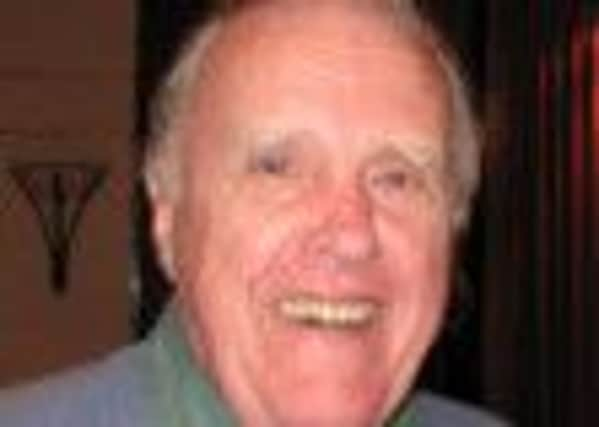Obituary: Ian McNaught-Davis, mountaineer and broadcaster


Ian McNaught-Davis was a mountaineer who gained national renown when he climbed and delivered live commentaries on the conquest of The Old Man of Hoy in Orkney in 1967. The BBC called the programme The Great Climb and it was, indeed, a mighty undertaking. The 450ft vertical sandstone stack which stands close to Rackwick Bay on the west coast of Orkney was an amazing challenge for any rock climber, but to have 15m million viewers gripped by the event and given a breathless commentary by Chris Brasher was a major challenge. The ascent, however, proved vital viewing. The three teams of climbers – Chris Bonington, the Ullapool GP Tom Patey, Dougal Haston, Pete Crew, Joe Brown and McNaught-Davis tackled the three routes up the perilous cliffs. They were exposed to the elements, the howling wind, inquisitive seagulls and unsteady rocks: the entire project seemed foolhardy.
The climb – one of the largest outside sporting broadcasts the BBC had then undertaken – was spread over three nights in July and proved (literally) a cliff-hanger. The BBC ferried tons of equipment, cameras and medical facilities from the Firth of Clyde in army landing crafts and then had to cope with a lack of mains electricity for the film crew. Leading climbers were hired to manhandle cameras and transmitters up the rock.
Advertisement
Hide AdAdvertisement
Hide AdMcNauught-Davis remained remarkably calm throughout. He was roped up with a long-time climbing friend Joe Brown and their comments were heard round the world as they made their pain-staking progress. McNaught-Davis calmly delivered commentary via a home-made radio mic. His off-the-cuff asides as he clambered up the rock edge were insouciant in the extreme: “If you fall off,” he quipped, “you hang in space and you last about two minutes before you pass out. I wasn’t really too enthusiastic about doing that.”
The spectacular shots, combined with the tension, and the natural chemistry between the climbers proved irresistible viewing.
The “performers” gained immediate renown and certainly put rock-climbing on the sporting map.
Brasher’s enthusiastic identifying of the bird-life became integral to the relay’s success – he much enjoyed spotting the flocks of guillemots, puffins and shags.
Ian McNaught-Davis, known to everyone as Mac, won a scholarship to Rothwell Grammar School and did his National Service with the RAF. He read mathematics at Manchester University and then worked for BP in Africa.
But climbing was his passion and he was a member of the British team in 1956 that made the first ascent of the hugely demanding Muztagh Tower (7,276 ft) in the Karakorum Mountains in Pakistan. His ebullient character led him to undertake climbing broadcasts on the Matterhorn and the Eiffel Tower.
With remarkable foresight, McNaught-Davis joined ComShare in 1971 to run the European division of their computer company specialising in financial software. He left that post in the 1980s to concentrate on working within various governing bodies in mountaineering.
His passion for computers also led him to co-presenting the BBC’s Computer Programme with Chris Serle in 1981. The series did much to de-mystify technology and explain how it could be adapted both in the work place and at home. The series proved popular and the BBC commissioned further programmes until 1987.
Advertisement
Hide AdAdvertisement
Hide AdPresenting these programmes saw McNaught-Davis at his most professional as a communicator. He was a keen advocate of bar codes and how computers could be more widely used in schools. But it was all delivered with a buoyant enthusiasm and never in a patronising manner or with endless use of techno-jargon.
“He had immense charm and bonhomie,” Serle recalls. “A big bloke with a great big grin and a smile all over his face. I just knew I was going to be in comfortable company.”
But his fame emanated from those three exhausting days in Orkney. McNaught-Davis’ first remarks when the broadcast started captured the very nature of the climb: “It’s like climbing over a plate of broken dinner plates that are cracked and edgy” McNaught-Davis told viewers. “What a place. It’s an awesome pinnacle.”
Sir Chris Bonnington was a life-long friend and recalled climbing together with a special pleasure. “Mac was a formidable mountaineer. The ascent of Muztagh Tower was a huge climbing achievement. On The Old Man climb Mac was a magnificent support and his commentaries were wonderful and fluent. He was away ahead of his time in climbing and broadcasting. When it was wet and horrible he’d have a joke. Mac climbed for the joy of it.”
Ian McNaught-Davis married, first, Mary Alderman, with whom he had two sons. The marriage was dissolved and in 1981 he married Loreta Herman, and she and his two sons survive him.